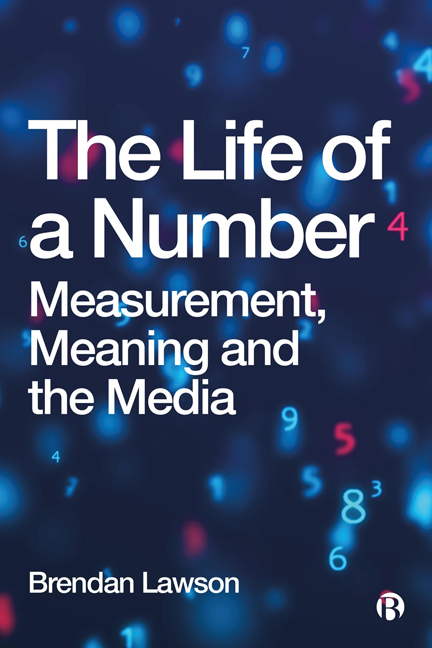Book contents
- Frontmatter
- Dedication
- Contents
- 1 Introduction
- 2 Data Bounds Are Reinforced by Policy
- 3 Quantitative Realism Underpins Data Bounds
- 4 Quantitative Realism Is Mathematical and Abstract
- 5 Desire for Data Bounds Underpins Quantitative Realism
- 6 Data Bounds Are Emotive
- 7 Data Boundaries Are Drawn Within Historical Norms
- 8 Critically Engaging with Data Bounds
- Afterword
- Notes
- References
- Index
2 - Data Bounds Are Reinforced by Policy
Published online by Cambridge University Press: 18 January 2024
- Frontmatter
- Dedication
- Contents
- 1 Introduction
- 2 Data Bounds Are Reinforced by Policy
- 3 Quantitative Realism Underpins Data Bounds
- 4 Quantitative Realism Is Mathematical and Abstract
- 5 Desire for Data Bounds Underpins Quantitative Realism
- 6 Data Bounds Are Emotive
- 7 Data Boundaries Are Drawn Within Historical Norms
- 8 Critically Engaging with Data Bounds
- Afterword
- Notes
- References
- Index
Summary
As cases were rising in the middle of October 2020, ITV news – a popular commercial television channel – broadcasted a roundtable of coronavirus experts. Some argued for a national lockdown to be introduced, while others called for the UK to live alongside the virus. During the debate Devi Sridhar, Chair of Global Public Health at the University of Edinburgh, explained that, “Right now, we are taking a hit to the economy, major economic damage, without the public health benefit, which, in a way, is kind of a worst of all worlds” (Channel 4, 2020).
Sridhar's argument draws our attention to the two main ways of talking about the effects of the pandemic: public health and the economy. But it also emphasizes the way this conversation is often underpinned by numbers, even if they are not explicitly stated. If we rework her statement using data, we can see the implicit logic: ‘At the moment, in England, GDP growth is negative and cases and deaths linked to COVID-19 are high, which is the worst of all worlds.’ The fact that Sridhar does not need to refer specifically to these indicators demonstrates the way these metrics do not just represent the economy and health during the pandemic – they have come to stand in for these two phenomena. To talk about the economy and health, generally means talking about economic metrics and public health indicators. The numbers have become the phenomena they attempt to represent.
This is not unusual – it has become common to use ‘the economy’ and ‘GDP’ interchangeably. But the pandemic witnessed the rapid establishment of two contradictory data bounds that rested on the ability of numbers to stand in for health and the economy. Trade-Off was the dominant way of thinking of the pandemic in England – it positioned official measures to combat the virus as improving public health but coming at the cost of the economy. In her quote above, Sridhar was talking from the second, less popular, data bound: Protect Both. It emphasized that public health measures could protect both the economy and health, whereas a lack of state intervention would mean both the economy and health would suffer.
- Type
- Chapter
- Information
- The Life of a NumberMeasurement, Meaning and the Media, pp. 18 - 31Publisher: Bristol University PressPrint publication year: 2023

